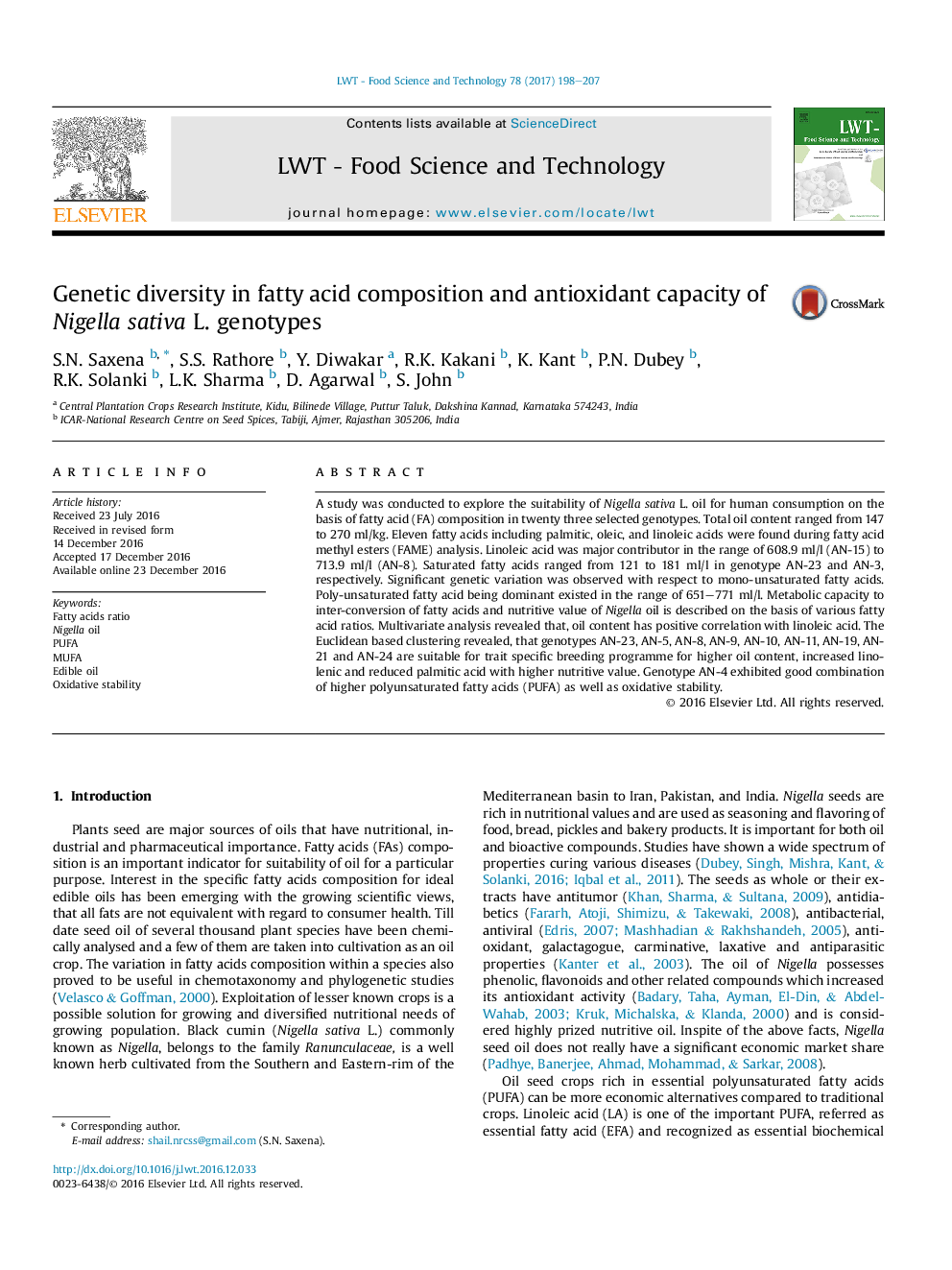| کد مقاله | کد نشریه | سال انتشار | مقاله انگلیسی | نسخه تمام متن |
|---|---|---|---|---|
| 5769038 | 1628520 | 2017 | 10 صفحه PDF | دانلود رایگان |

- Nigella seeds oil showed potential to be used as edible oil for human consumption.
- Genotype (AN-23) with unique and desirable fatty acid combinations identified.
- Genotype with higher poly-unsaturated fatty acids & antioxidant contents identified.
- Genetic variation may be utilized in trait specific breeding programme.
A study was conducted to explore the suitability of Nigella sativa L. oil for human consumption on the basis of fatty acid (FA) composition in twenty three selected genotypes. Total oil content ranged from 147 to 270Â ml/kg. Eleven fatty acids including palmitic, oleic, and linoleic acids were found during fatty acid methyl esters (FAME) analysis. Linoleic acid was major contributor in the range of 608.9Â ml/l (AN-15) to 713.9Â ml/l (AN-8). Saturated fatty acids ranged from 121 to 181Â ml/l in genotype AN-23 and AN-3, respectively. Significant genetic variation was observed with respect to mono-unsaturated fatty acids. Poly-unsaturated fatty acid being dominant existed in the range of 651-771Â ml/l. Metabolic capacity to inter-conversion of fatty acids and nutritive value of Nigella oil is described on the basis of various fatty acid ratios. Multivariate analysis revealed that, oil content has positive correlation with linoleic acid. The Euclidean based clustering revealed, that genotypes AN-23, AN-5, AN-8, AN-9, AN-10, AN-11, AN-19, AN-21 and AN-24 are suitable for trait specific breeding programme for higher oil content, increased linolenic and reduced palmitic acid with higher nutritive value. Genotype AN-4 exhibited good combination of higher polyunsaturated fatty acids (PUFA) as well as oxidative stability.
Journal: LWT - Food Science and Technology - Volume 78, May 2017, Pages 198-207